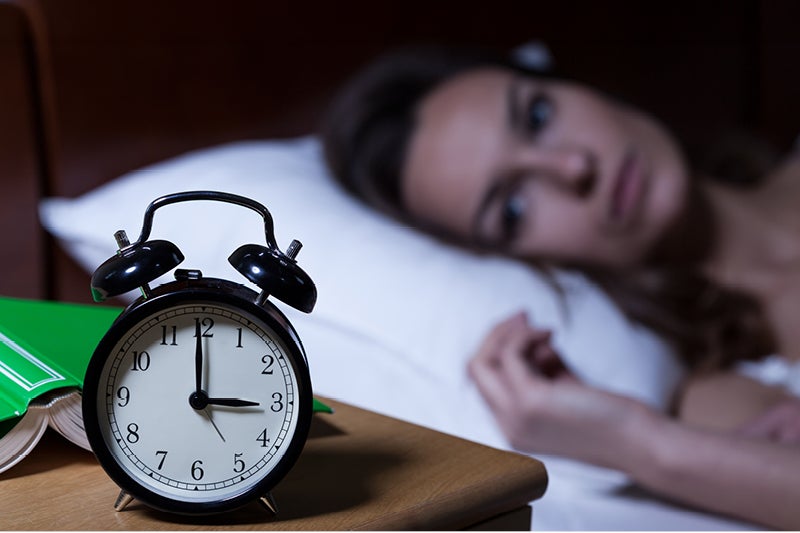Middle-of-the-night awakening: Why can't I stay asleep?
February 4, 2025Categories: Sleep Medicine, Neurosciences

It’s the middle of the night and you’re suddenly wide awake. The clock says 3 a.m., the same time you always seem to wake up. You wonder, why do I wake up from a sound sleep? And why at the same time?
The reasons you wake up hours before your alarm goes off are as many as the sheep you count to lull yourself back to sleep.
Nighttime awakening can be caused by medications, lifestyle, hormonal changes, aging, stress and insomnia. While frustrating, 35% of us experience this least three times per week, says the Sleep Foundation.
First, a little background on the sleep cycle. Your circadian rhythm is an internal 24-hour clock that causes different hormones to release at different times each day to promote sleep or energize your body and mind. These rhythms, combined with other factors that cause you to wake up at night, might mean your body regularly wakes up around the same time.
Hormones
Women in perimenopause and menopause often wake up in the middle of the night. Changing hormones cause fluctuations in body temperature, hot flashes and night sweats. Pregnancy also can disrupt sleep due to hormonal changes.
Medications
Some prescription medications like stimulants, opioids and beta blockers affect your sleep. Diuretics, used to lower blood pressure by reducing water in your body, lead to middle of the night trips to the bathroom. Beta-blockers suppress your body’s production of melatonin, which promotes sleep. Anti-depressants also cause sleep troubles.
Mental health
Anxiety, stress, depression and an overactive mind can significantly interrupt your sleep.
Lifestyle
Too much screen time before bedtime, drinking alcohol and caffeinated drinks or using nicotine can trigger middle-of-the-night awakenings.
Physical conditions
Sleep apnea, indigestion, pain and chronic diseases like type 2 diabetes can cause you to wake up. Also, as we age, our normal sleep cycle becomes shorter, and we spend less time in deep sleep.
Up to one in five Americans have sleep maintenance insomnia, an inability to stay asleep through the night. While it’s easy to count the hours until it’s time to wake up for the day, try these tips to get back to sleep for the rest of the night.
Tips to get back to sleep
- Don't watch the clock. While tempting, watching the minutes pass only makes it more difficult to fall back asleep.
- If you can't fall back to sleep within 20 minutes or so, get out of bed. Go to another room and read or do something quiet activities until you feel sleepy.
- Avoid screens. Screen from smartphones and e-readers emit blue light that may suppress your body's melatonin production.
- Try a sleep app. Sleep apps provide soothing music or calming stories and sounds to help you get back to sleep.
- Try not to turn the light on. The bright light can stimulate wakefulness.
- Relax your muscles. Try full body scan meditation to calm your mind. Close your eyes, breathe slowly. Focus first on relaxing muscles in your face, then neck and shoulders, then arms and fingers and so on until you reach your feet.
- Try box breathing. Breathe in for four seconds, hold your breath for four seconds, exhale for four seconds and hold your breath again for four seconds. Imagine working your way around a square box as you breathe. Repeat the pattern.
- Improve your sleep hygiene. Practice sleep hygiene or the daily routines that affect your sleep.
If you continue to have problems sleeping, talk to your provider about whether you need to see a sleep specialist.
This blog was reviewed by a MercyOne medical provider.
